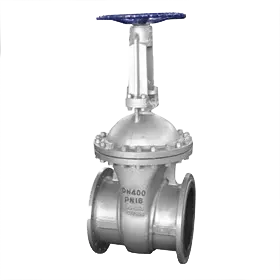A gate valve is one of the most widely used valve types in industrial applications, known for its ability to provide reliable on-off control across a range of conditions.

Here are the key applications and scenarios where a gate valve is best suited:
1. Full On/Off Flow Control
Best for: Situations where full, unobstructed flow or complete shutoff is required.
Reason: Gate valves are designed to either fully open or fully close, with minimal pressure drop when open, as the gate moves completely out of the flow path. This makes them ideal for applications where fluid flow must be completely stopped or allowed to flow freely without restriction, such as in pipelines or fluid transfer systems.
2. Low-Resistance Flow
Best for: Applications requiring minimal pressure drop.
Reason: When fully open, gate valves create little to no resistance to the flow of fluids, gases, or steam. This makes them well-suited for systems that require smooth, uninterrupted flow, such as water distribution systems or oil pipelines, where maintaining pressure is critical.
3. High-Pressure and High-Temperature Applications
Best for: Handling high pressures and high temperatures.
Reason: Gate valves can withstand high pressures and extreme temperatures, making them ideal for industrial applications such as oil and gas, power generation, and petrochemical processes. They are particularly useful in applications involving steam, high-pressure water, or abrasive fluids, where durability and reliability are essential.
4. Large-Diameter Pipelines
Best for: Large systems with big pipelines.
Reason: Gate valves are commonly available in larger sizes compared to many other valve types, making them ideal for large-diameter pipelines in industries such as water treatment, sewage systems, and power plants. Their ability to control flow in these systems is critical in managing high-volume fluid movement.
5. Isolating Sections of a Pipeline
Best for: Isolating sections of a system for maintenance or repair.
Reason: Gate valves are used to isolate different sections of a pipeline, allowing engineers to shut off flow in one section while working on another. The complete closure of the gate ensures a tight seal, preventing fluid from passing through during maintenance.
6. Corrosive and Abrasive Fluids
Best for: Handling corrosive or abrasive media.
Reason: Gate valves are available in materials like stainless steel, cast iron, and specialized alloys that resist corrosion and wear. This makes them well-suited for applications involving harsh or abrasive fluids, such as in mining operations, slurry systems, or chemical processing.
7. Bi-Directional Flow
Best for: Systems that require flow in both directions.
Reason: Gate valves can control flow in either direction, making them versatile for pipelines where the flow direction may need to change. Unlike some other valve types, gate valves are not unidirectional, increasing their flexibility in complex piping systems.
Previous: Nov.27th-30th 2012 OSEA
